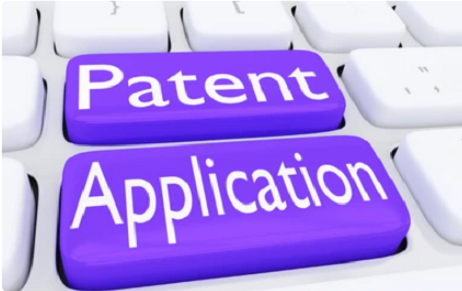Introduction What is Artificial Intelligence? Creating computer systems capable of carrying out activities that need…
Patent Registration: Indian vis a vis foreign perspective Roadmap to Patent filing: A holistic view
Introduction
Intellectual Property is a way of protecting technologically invented rights. Various forms of creation that need protection such as marks, services, logos, and many others exist. Trademarks, Copyright, Patent, Geographical Indication, and many such are ways to protect the person’s creations. This spirit of protection needs acknowledgement and legal implications for its arbitrary use.
The article aims to highlight how Patent Laws protect the inventors before and after their inventions and what scenario lies for the registration process in India as well as Internationally. Moreover, the article exhaustively discusses the step-by-step procedure for registering Patent Applications and Filling procedure nationally and internationally.
[Image sources: Shutterstock]
 Laws guiding Patent in India
Laws guiding Patent in India
As per Indian Law, there exists the Patent Act, of 1970 which regulates the protection of inventors and their inventions. As per section 2 (1)(m) of the Patents Act, 1970 Patent has been defined as a “Patent for any invention as granted under the Act”. Patent Act, 1970 has its objective to protect and safeguard intellectual products. Moreover, Patent Law covers all inventive processes, product, or an article that is going to be manufactured or is already manufactured and thus satisfies the patent eligibility requirements of having novelty, inventive steps, and is capable of industrial application. Patent Laws protect patented products for 20 years from the date of filing the patent application.
Procedure for Patent Registration in India
- It has to be ensured the invention’s patentability by conducting a search
- Then, drafting of the application of patent.
- After which filing of the patent application in India is done
- Then, the publication of the patent application is done
- Further, examination of the patent application
- Then there is a grant of patent
- And lastly renewing the patent[1]
Now before proceeding to fill out the patent application, it has to be noted that there are essentially three requirements that are stated for acquiring patent registration in India[2]: –
- The patentable product should be new;
- Should have an inventive step;
- And can be applied in industry.
Hence, after confirming the patentability requirements as stated above one can further proceed with the patent application.The process necessitates the formulation of a comprehensive application, encompassing all requisite specifications and claims. Subsequently, the applicant may initiate the procedure for patent application in adherence to the stipulated regulations. For Indian applicants, they must adhere to the requirements for Form 1 of the Indian Patent Application and provide Form 2 patent specifications for each application. The choice between provisional and complete patent applications rests upon the developmental stage of the invention. If the innovation is in a testing phase, it is prudent to file a provisional patent application, affording a 12-month window for the completion of the invention and subsequent filing of a comprehensive patent application.
Filling of Patent application form in India
Upon completion of the drafting process, the prepared patent application necessitates submission to the Indian Patent Office accompanied by the requisite filing fee. The submission process may be conducted through either online or offline channels. After the submission, the patent office will issue an acknowledgement receipt for the application. There are various forms through which the patent registration can be filled which are stated below:
- Form 1: Application for granting of a patent
- Form No. 2: Then there exists a specification of the form of the application, whether provisional or complete
- Form No. 3: This form helps in compliance with Section 83, an undertaking and statement have to be provided regarding foreign applications if a corresponding application is also filed in another country
- Form No. 5: Further to this there is a need of a declaration of the invention along with complete application and working of the invention
- 26: then if the applicant has opted for an agent to file the patent, a form authorizing the agent has to be filed
- Form No. 28: Lastly this form is mandatory only if the applicant claims the status of a small entity or a start-up.
International Patent Registration: PCT and its operation.
While one talks about International Patent filling or Global Patent filling, the most appropriate way to do so is to become a signatory of PCT and file the application under the same. The Patent Cooperation Treaty (PCT) constitutes an international legal accord involving more than 145 Contracting States and is administered by the World Intellectual Property Organization (WIPO). This treaty serves as a positive mechanism, allowing applicants to concurrently seek patent protection for an invention across a diverse spectrum of countries. This is facilitated through the submission of a unified “international” patent application, as opposed to the conventional practice of filing numerous discrete national or regional patent applications. PCT application filling can be done through online mode and the documents required are :
- PCT application filling can be filled through two formats i.e., Conventional form or PCT Safe Easy Format.
- The request must be filled in EFS-Web in Conventional format by uploading the pdf format of the request.
- Alternatively the form can be submitted in EWS Web in PCT Safe Easy Format by uploading the Zip file of the request.
Drawings can also be made part of the form as and when necessary for a better understanding of the invention.
It is imperative to underscore that the authority to grant patents is retained exclusively by the national or regional patent offices during the “national phase.” This phase represents the subsequent stage in which the patent application process unfolds, remaining subject to the regulatory oversight and jurisdiction of the respective national or regional patent offices.[3]
Patent filing :Aspect for Global Patent application filling
There are a few steps involved in filing for a patent application which can be stated as below;
- First, to file the international application in a Receiving Office (RO)
- Secondly, It is important to conduct International Search by an International Searching Authority (ISA)
- Thirdly and lastly, International Preliminary Examination is done by an International Preliminary Examining Authority (IPEA).
There also exista few very authentic organizations under PCT which are collaborated by WIPO and are known as the International Searching Authority and International Preliminary Examining Authority. International Search Report helps in identifying the published patent documents and technical literature which helps in identifying that the patent is a valid invention. Through this report and search it is also established that the invention is patentable. Moreover, the International Preliminary Examination (IPE) helps in establishing the preliminary report on patentability.[4]
Through the above-stated means of examination and before 30-31 months from the priority date, the patent application can be filled for the grant of a Patent as per the national patent offices. The International application filled as per PCT is treated as a valid application in India.
Conclusion
The process of patent application drafting in India mandates the inclusion of a thorough exposition of the invention, accompanied by any requisite drawings and schematics. Furthermore, the application should feature a detailed elucidation of the operational mechanics of the concept and highlight its points of differentiation from existing solutions. Engaging the services of a patent agency or a qualified patent attorney is highly recommended to facilitate the meticulous design of the patent application, ensuring alignment with all stipulated requirements.[5]
Author: Asma Khan, A Student at Lloyd Law College, in case of any queries please contact/write back to us via email to chhavi@khuranaandkhurana.com or at IIPRD.
[1]https://www.mondaq.com/india/patent/1294582/patent-registration-process-in-india-a-comprehensive-guide-to-filing-and-prosecuting-patent-applications.
[2]https://www.lakshmisri.com/Media/Uploads/documents/l&swebsite_ipr_featured_ranjan.pdf
[3]https://ipindia.gov.in/writereaddata/images/pdf/pct-filing.pdf.
[4]https://ipindia.gov.in/writereaddata/images/pdf/pct-filing.pdf.
[5]https://www.mondaq.com/india/patent/1294582/patent-registration-process-in-india-a-comprehensive-guide-to-filing-and-prosecuting-patent-applications.

 Laws guiding Patent in India
Laws guiding Patent in India

